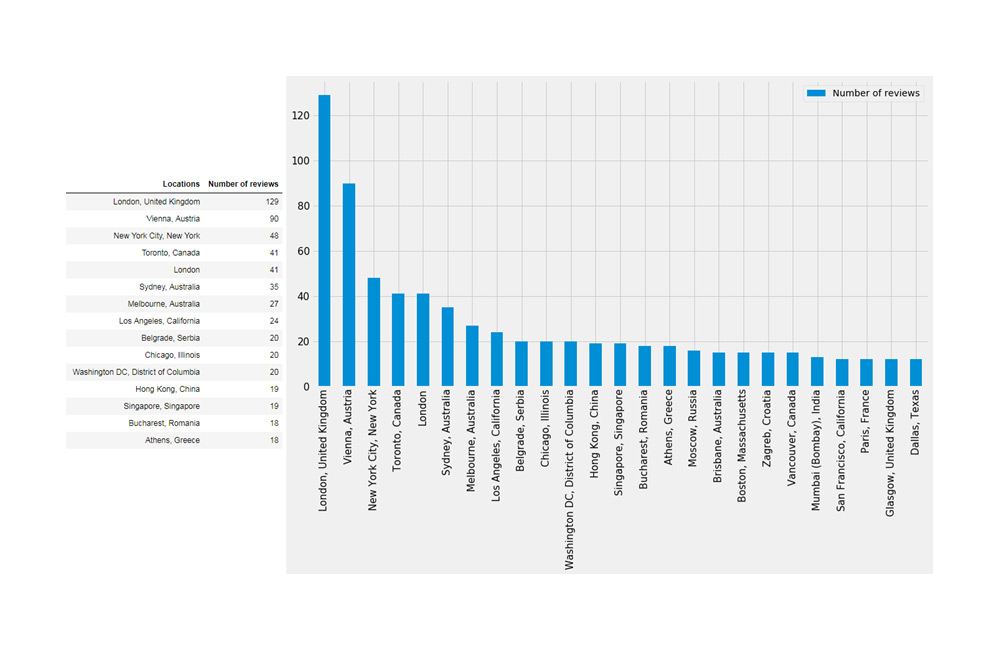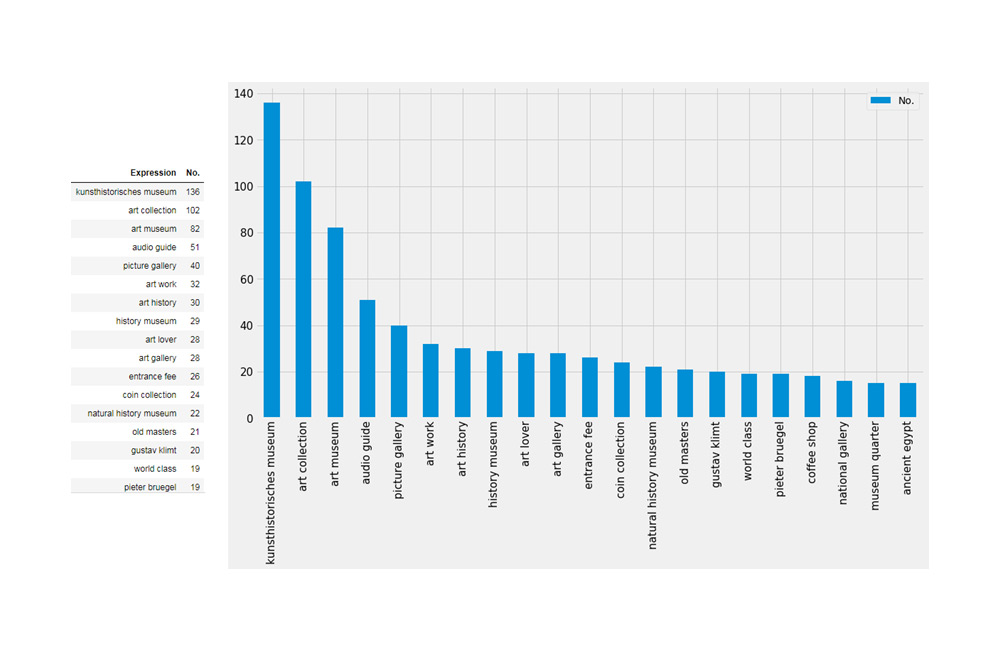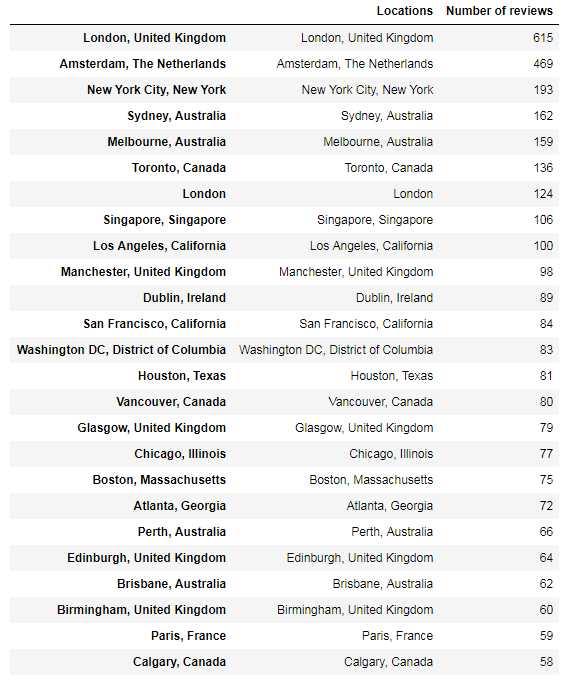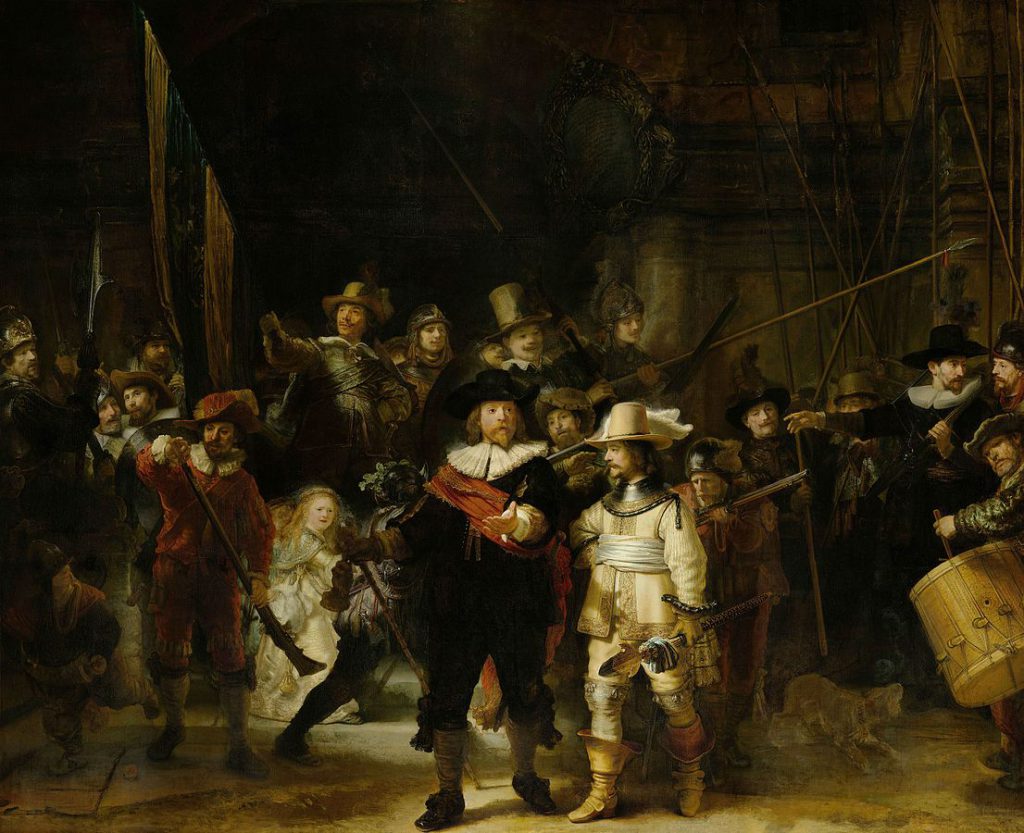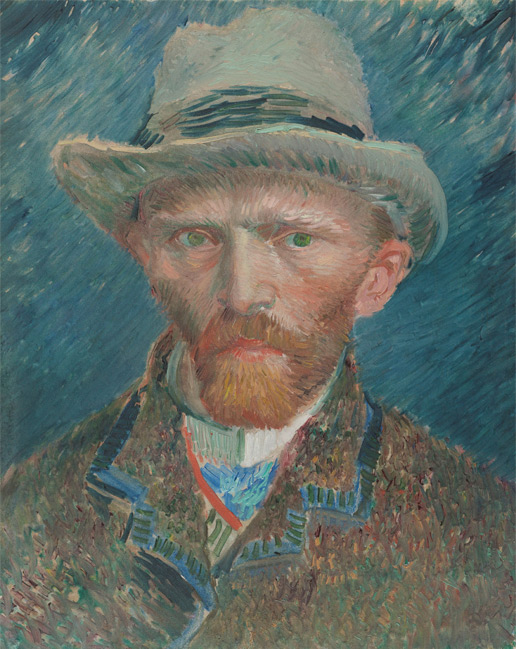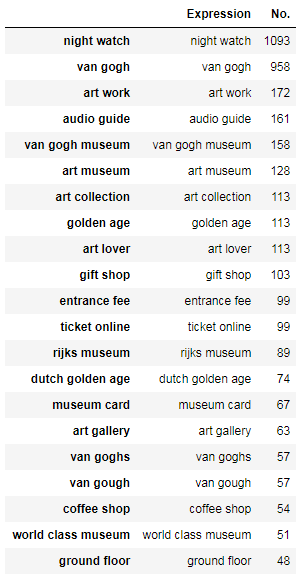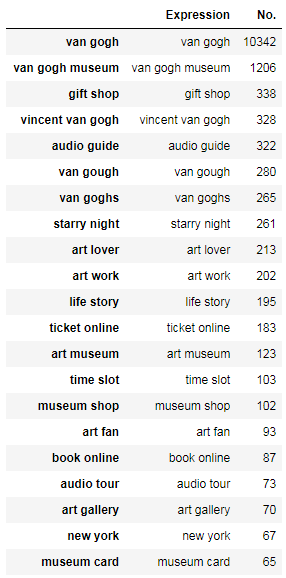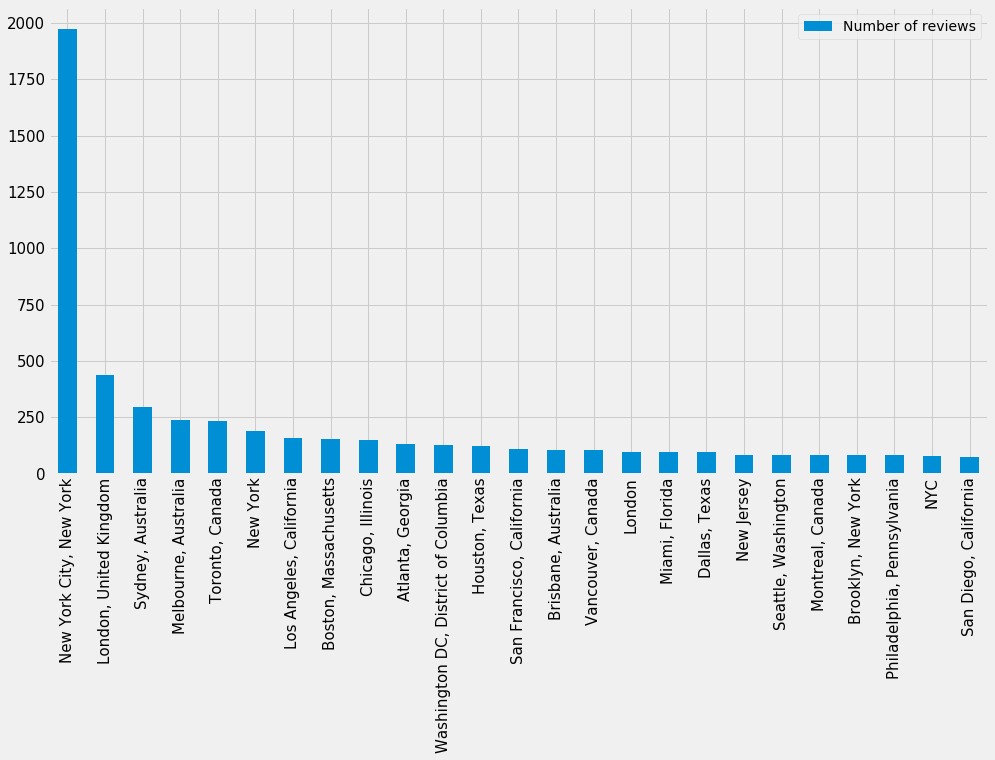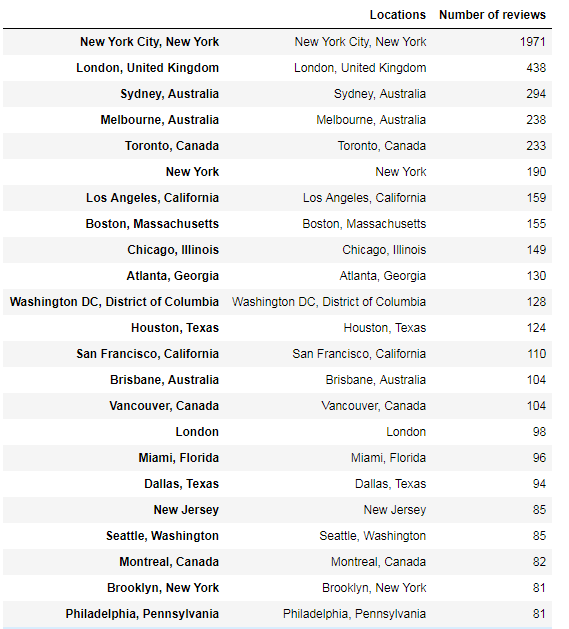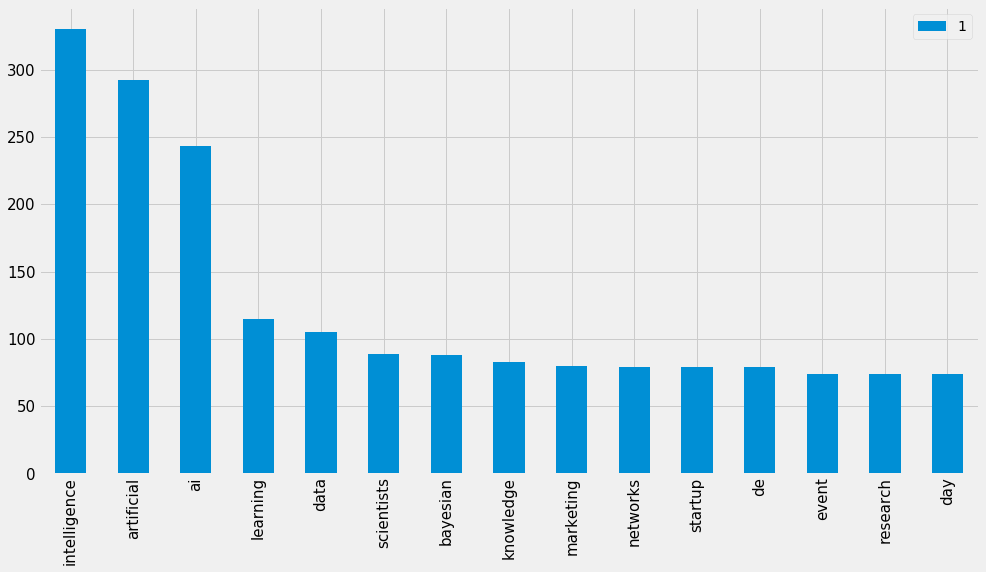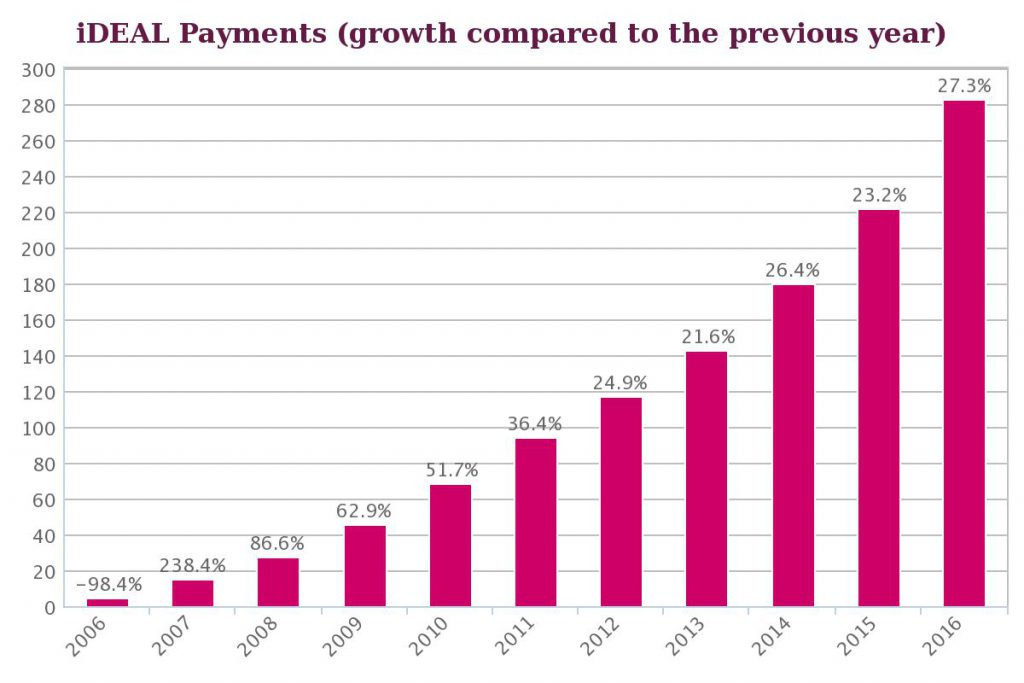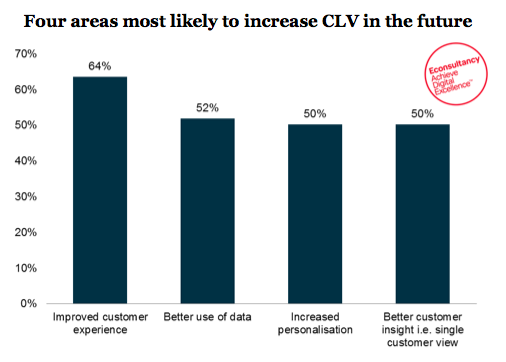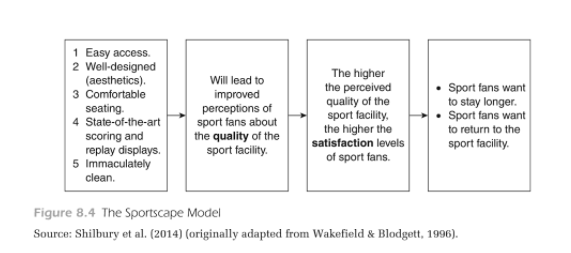Last week I had the privilege of attending Vienna Contemporary, a modern art fair with a love for technology. Oveit was a part of the CultTech hackathon and we won the innovation award for cultural institutions ticketing </humblebrag>. By being a part of the hackathon we were able to get insights from one of the largest and most beautiful museums in the world: The Kunsthistorisches Museum, home of one of the most exquisite art collection. Here’s how we’ve found that people still buy museum tickets:
If you’ve visited Vienna but somehow missed the museum, don’t worry, you are not the only one. As we gathered some data we’ve noticed that even though the venue is the third most popular thing to visit in Vienna, its number of reviews were slightly off:

Source: Tripadvisor
So what is happening here? Why does KHM have 4 times less reviews than the Schonbrunn Palace?
We did a little digging and found some interesting things. And by a little digging I mean analyzing over 3200 reviews using Natural Language Processing (buzzword for using algorithms to sort through text data – we do a bit of that around here).
Here’s what we found:
People love going to the museum for different reasons. But they do love going to the museum.
We’ve got our first insight when we visited the museum (surprising, right?). There’s no algorithm to express the feeling of seeing people immersed in the works of art. Or children having fun by looking at a statue, a Bruegel painting or a crocodile mummy. Yes, they also have that.
The second clue was when we discussed with Florian Pollack, marketing and communications manager for the museum. He mentioned that many tourists would, unfortunately, miss the museum while visiting the Museum of Modern Art or the Natural History Museum. But those that visited the museum were in fact “overwhelmed and impressed” by what they have discovered.
So we decided to test that. We analyzed the review data and found this: the data showed people loved the museum. Ticket buyers where the best evangelists the museum had. We noticed a 96% positive sentiment among those that reviewed their visit to the museum.
Where are the museum ticket buyers coming from?
We digged through data and noticed that most of the museum visitors that reviewed their visits were not coming from Vienna. They were mostly tourists:
Top three cities that buy museum tickets: London, Vienna, New York. However, the long tail was quite long, we noticed. People came from all around the world and they loved their experience. So what exactly where they more interested in?
What are people most interested in when visiting a museum?
By analyzing the data we noticed some things popping up here and there. In case you are thinking about visiting the museum, here’s what the hot topics are:
Art: people were interested in the art collection, the art works, art history and art gallery. Basically – people are going there for the art.
They were mentioning the audio guide as a great resource and among the most interesting works where the coin collection, old masters works, Gustav Klimt’s work as well as Pieter Bruegel’s.
By the way – here’s one of the museum’s most treasured works of art, the Tower of Babel, a classic painting by Pieter Bruegel:
“Well yeah, but that’s just one museum, what does your data say about others… or maybe you don’t have any?” Yeah, we thought you might say that so we went ahead and studied some other museums you might have heard of:
The Metropolitan Museum in New York
The Van Gogh Museum in Amsterdam
The Rijksmuseum in Amsterdam
These three museums had a combined 68211 reviews so this turned into a bit more than a side project for a blog post.
Here’s what we’ve found, starting with the Rijksmuseum in Amsterdam :
Visitors to the Rijksmuseum love the Night Watch, Rembrandt, Van Gogh, the gift shop and the coffee shop. Oh, and they want to buy museum tickets online.
The Rijksmuseum hosts more than 8000 works that tell the story of 800 years of Dutch history so visitors’ opinions were quite different. However, some common threads did pop up on our research.
London is again on top of our list of most reviews locations. Number two is Amsterdam, an obvious choice as most visitors are bound to be locals. The third spot: New York, New York. But look at number four and five: Sidney and Melbourne, all the way from Australia. If flying on the other side of the planet is not love of art, I don’t know what it is:
Rijksmuseum visitors love The Night Watch and they love Van Gogh
While studying the reviews we noticed (it was kind of hard to miss it) the most loved item in the museum’s collection: The Night Watch.
Source: Wikipedia
The painting, a work by Rembrandt van Rijn from 1642 is famous for three things:
- its size (363 cm × 437 cm / 11.91 ft × 14.34 ft)
- the light and shadows
- the perception of movement
The work was finished in 1642, when the Dutch Golden Age was at its peak. That’s why you will see “Dutch Golden Age” as one of the hottest topics.
If you wanna get a preview of the painting, before deciding on whether you should visit the museum, the Rijksmuseum has all the info ready for you to preview. Fun fact – you can also see Obama visiting the museum and its most famous painting, in the preview page.
Van Gogh – One of the most famous painters in the world, partly hosted in the Rijksmuseum. Many visitors listed Van Gogh (as well as its close relative “Van Gough” 🙂 ) in their reviews. The reason is one of the most well-known self-portraits:
But these are not the only reasons people buy tickets to museums such as Rijksmuseum. Here are some of the other terms we’ve noticed:
- art work
- art museum
- art lover
- art gallery
Basically they love art. But they also love some of the other things the museum has to offer, and I might say that The Rijksmuseum is quite an avantgarde museum, building experiences around its works of art. People also come there for the high-quality audio guide, the wonderful gift shop and its coffee shop.
Before they visit they are interested in the entrance fee, buying tickets online and the museum member card. So if you manage a museum – you might take note of this.
PS: the ground floor is THE place to be. Here are the hot topics:
Visitors who buy museum tickets to the Van Gogh Museum = Rijksmuseum visitors. But they are looking at different things.
It’s probably no surprise that people who visit the Van Gogh museum are looking for Van Gogh artworks. But they are also interested in its life story, very interested in the gift shop and disappointed by not finding the “Starry Night” (it’s at the Museum of Modern Art)
Not pictured above: one of the artworks in the Van Gogh Museum 🙂
Visitors are also interested in the gift shop and buying tickets online. So that topic again.
For a more extended interests list have a look below:
PS: get ready for the long lines:
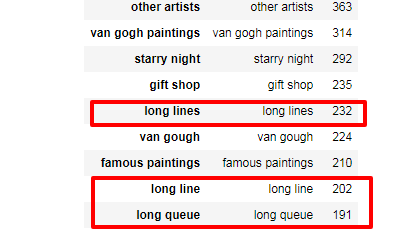
The Metropolitan: visited by New Yorkers, Brits and Aussies. Main point of interest: Frank Lloyd Wright, Andy Warhol and the Costume Institute
Unlike the previous museums, most reviews come from New Yorkers. By far:
Hard to see? let’s turn shift the perspective a bit:
As you can see most reviews come from New Yorkers, followed by visitors from London and then Sydney and Melbourne. Apparently, EU visitors are not really interested in visiting The Met, and if they are, they are a bit shy about it.
Regarding the interests, you will find that people who buy museum tickets to the Metropolitan Museum are interested in:
- the Central Park (The Met overlooks the Central Park and it is something visitors do before or after their visit to the museum)
- Van Gogh (the museum has an extensive Van Gogh collection)
- the art collections
- China through the looking glass
and more:
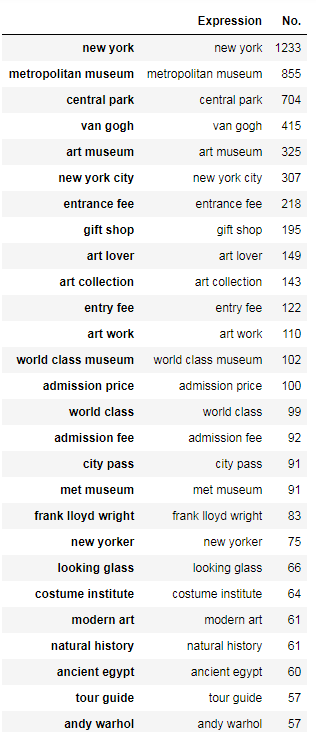
Regarding the overall feeling, I would say visitors were overwhelmed. Attributes such as great, wonderful and huge were used to describe the museum:
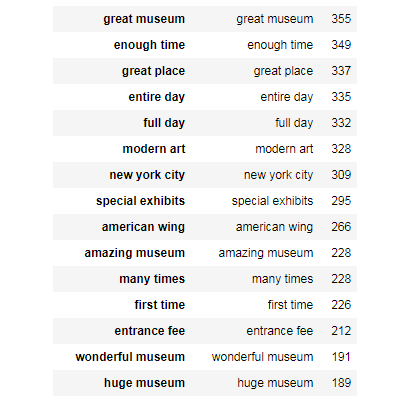
So – that’s the end – four great museums and 65 000 reviews later I can surely say that people do buy museum tickets. Each museum has its own stars and people are attracted to these culture stars. Visitors love to spend time enjoying the museum experience and they want to purchase mementos of these visits. They are interested in buying their tickets online, spending enough time within the museum and enjoying unique works. Oh and by the way: it helps to have a cafe.
